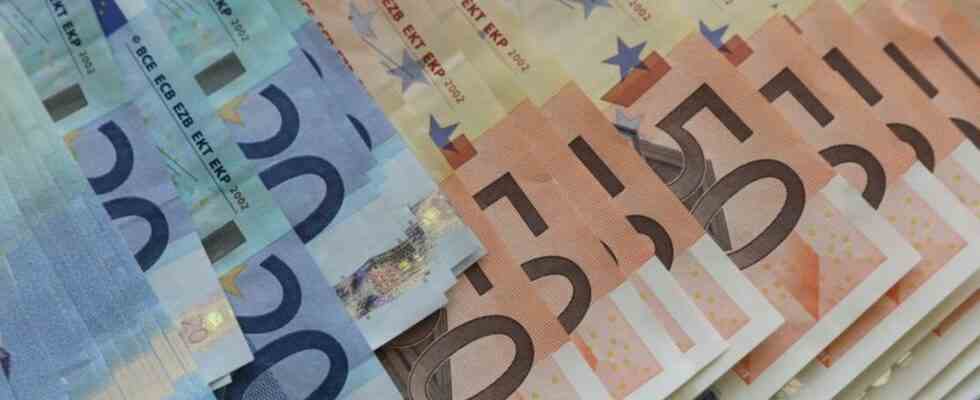economy
Bundesbank: War is slowing down the upswing and driving up prices
Bundesbank Monthly Report: The effects of the Ukraine war will have a noticeable impact on the economy in Germany from March. Photo: Bernd Wüstneck/ZB/dpa
© dpa-infocom GmbH
Actually things looked good for the German economy despite the Omicron wave. But the Ukraine war aggravated the situation again. Companies and consumers must expect prices to continue to rise.
According to the Bundesbank, the war in Ukraine is temporarily slowing down the German economy.
“The effects of Russia’s attack on Ukraine are likely to have a noticeable impact on economic activity in Germany from March onwards,” summarized the Deutsche Bundesbank in its March report published on Monday. “From today’s perspective (…), the strong recovery planned for the second quarter is likely to be significantly weaker.”
In the first quarter of 2022, economic output in Europe’s largest economy could “roughly stagnate”, write the economists at the Bundesbank in Frankfurt. Other economists expect gross domestic product (GDP) to fall over the three-month period. That would then be a so-called technical recession, because the economy had already shrunk in the final quarter of 2021 compared to the previous quarter.
Ukraine war: problems expected again
Many companies weathered the latest wave of the corona pandemic relatively well, and material shortages eased. “Due to the Russian invasion of Ukraine, the problems in the supply chains are likely to worsen again in March,” the Bundesbank notes. In addition, energy prices rose massively as a result of the war. “This is expected to dampen consumption by private households and the production of energy-intensive industries.”
The Bundesbank does not expect prices to ease quickly: “Due to the war in Ukraine, the inflation rate is likely to continue to rise in the coming months, which is likely to be due in particular to energy prices.”
In February, the annual rate of inflation in Germany exceeded the five percent mark again: consumer prices were 5.1 percent higher than in the same month last year. Consumers had to dig deeper into their pockets for fuel, natural gas and heating oil in particular. “The prices for food and industrial goods should also receive an additional boost as a result of the slump in wheat exports from Ukraine and Russia or due to new disruptions in the supply chains,” estimates the Bundesbank.
Bundesbank boss Nagel on high inflation
In view of the upward trend in inflation, Bundesbank President Joachim Nagel is calling for the ultra-loose monetary policy to be scaled back further. “It’s very clear to me: if the price outlook requires it, we must continue to normalize monetary policy and also start raising our key interest rates,” said Nagel on Monday afternoon at an event hosted by the Deutsche Bundesbank in Hanover, according to a previously distributed speech. “If the net purchases end in the third quarter as currently planned, this opens up the possibility of raising interest rates later this year if necessary.”
At its most recent monetary policy meeting on March 10, the Council of the European Central Bank (ECB), of which Nagel is a member, decided to scale back the central bank’s billion-euro bond purchases faster than previously planned. However, the central bank left open when interest rates in the euro area will rise again after years of record lows. She stipulated that an interest rate step did not have to take place automatically after the purchase of new securities had been stopped.
“With all caution in view of the extraordinary uncertainty: we should not delay the exit from the very loose monetary policy,” said Nagel. “Otherwise interest rates might have to rise faster or higher later on. However, an abrupt rise in interest rates would put a heavier burden on companies and households. And it could uncover existing vulnerabilities in the financial system and trigger strong market fluctuations.”
According to Nagel, consumers in Germany will have to be prepared for further price increases in the near future: “Due to the surge in energy prices due to the war, consumer price increases should increase noticeably again, especially in the short term.” Sharply rising prices are particularly hard on people with low incomes. “Targeted transfers are appropriate to relieve particularly affected people a bit,” said Nagel. “However, we in the Governing Council must make sure that the strong inflation does not become entrenched and does not lead to excessive inflation in the medium term.”

